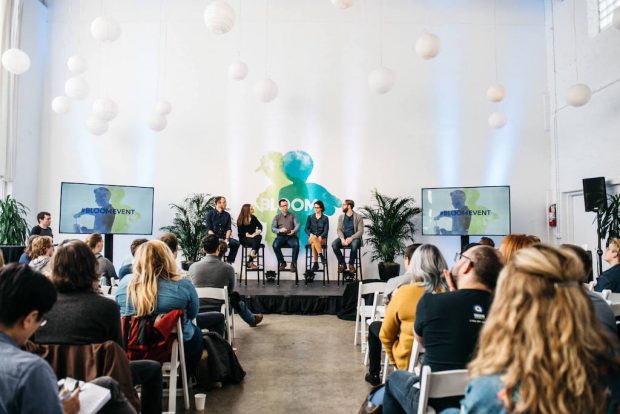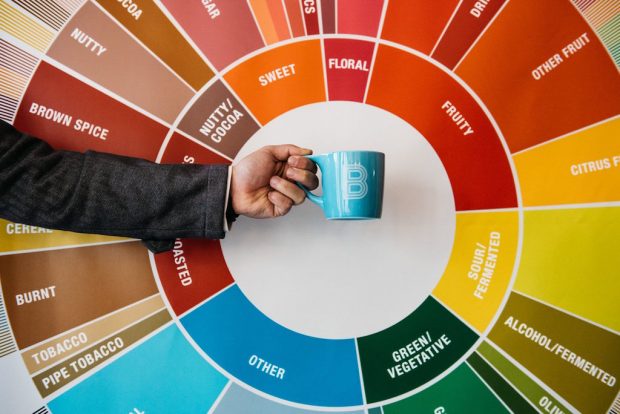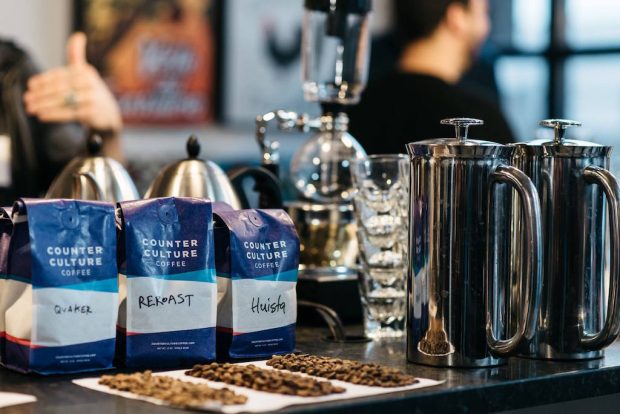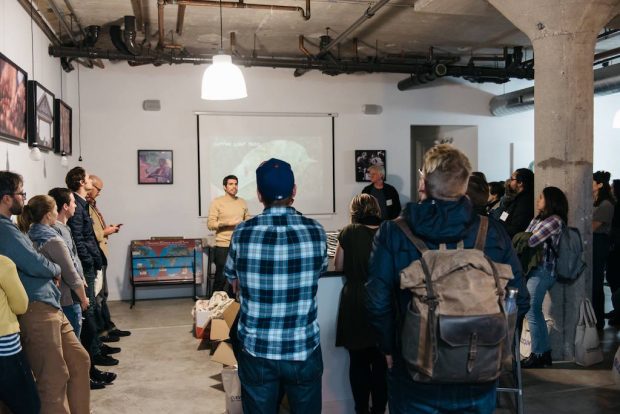How you do one thing is how you do everything.
Chicago restaurateur Donnie Madia received that sage advice from his wife and relayed it anew as a heavy-hitting pearl of wisdom at last week’s Bloom event in Chicago, presented by the Specialty Coffee Association of America Barista Guild, where approximately 150 baristas, shop managers, owners, roasters, and various other coffee professionals gathered at Prairie Production on Randolph Avenue to engage in conversations aimed at making us better at our jobs and to deepen our commitment to specialty coffee.
Madia’s talk was on the topic of being present in a service atmosphere, with the idea that the attitude with which we approach life in general is automatically going to translate into how we approach our roles as baristas. This is particularly important on the level of service, when we directly engage with guests in our shops.
Madia also emphasized the use of the word “guest” as opposed to “customer” or “consumer” in restaurants, as the more convivial term better conveys the warmth and friendliness of the experience we should aim to provide. The goal, Madia said, is for people to feel that they belong. And isn’t that exactly right? Don’t we, as baristas, want those on the other side of the counter to feel comfortable, safe and self-assured in our cafés? In this way, our homes and our places of work are no different — how we treat guests in our homes affects our hospitality at work.
In the afternoon session, entrepreneur Ria Neri, co-founder of Four Letter Word Coffee in Istanbul and Whiner Beer Co. in Chicago, shared a similar sentiment. “Your attitude becomes form,” she said.
Neri’s inquisitiveness about flavor and her dedication to a complete comprehension of every new thing she approaches ultimately commit her to a constant quest for knowledge. It’s an attitude that has led her to explore new ways of approaching both beer and coffee, and while the concept of attitude-to-form translation wasn’t the advertised theme of the event, it nonetheless provided a fitting lens through which many of the discussions could be perceived.
At Wednesday afternoon’s kick-off session at the Counter Culture Coffee’s Chicago lab, quality manager and green buyer Tim Hill introduced us to the company’s new optical sorter for roasted coffee, a major project of his for the past few years.
The sorter detects minute color variations and separates coffee beans — in this case, sorting out quakers. The power to weed out the odd beans results in a major bump in cup quality even from lower quality lots, thanks to which CCC is able to pay a better price to farmers for lower-grade coffee that they might otherwise not be able to sell on the specialty market. It’s an effort that reflects CCC’s commitment to long-term partnerships with producers.
We also heard from a panel of roasters and baristas about the various ways they communicate and collaborate across roles. Kickapoo’s Scott Lucey moderated a discussion between Blueprint Coffee’s Andrew Timko and Abi Svoboda, Halfwit Coffee Roasters’ Andrea Otto, and The Wormhole’s Andreas Willhoff. The clearest message I heard from this panel was about trust: Assuming everyone has been adequately trained, both roasters and baristas should trust each other to make decisions about quality and recipes. Trusting in one another’s skills within our specific roles is what facilitates the kind of mutual respect from which important, collaborative problem-solving can develop.
Friday’s final session on social media was another opportunity to reflect on the concept of how attitude becomes form, given that these social platforms are where the values and attitudes of companies are most prominently and conceptually displayed to the world. Our commitment to quality is demonstrated in brew guides and latte art shots; our innovative spirit is reflected in the signature drinks and seasonal offerings we promote; and our professionalism is conveyed through the detailed knowledge we share about the origins of our products as well as the respectful collegiality with which we introduce the producers whose hard work and dedication precede our own.
If there was one area in which the dots between attitude and form were not fully connected over three days of presentations at Bloom, it would be to origin, particularly to coffee farmers. Perhaps it was taken for granted that coffee professionals would already be familiar with the intense labor of coffee production or the poverty in which so many farmers live, yet the curtain between our first-world experience of specialty coffee and the not-so-pretty reality of daily life for coffee farmers remained largely drawn.
As baristas, we are on the front lines of service, often providing the only human link that brings coffee drinkers closer to a feeling of connection to the humans whose lives are dedicated to growing the coffee we serve and that our guests enjoy. I would welcome a coffee culture in which our hospitality-related themes of openness, friendliness, mutual respect and collaborative problem-solving extended throughout the coffee chain, to where our attitudes could affect the form in which we include even more people involved in making coffee come to life.
Jennifer Yeatts
A longtime barista and coffee professional, Jennifer Yeatts manages quality control and training at Higher Grounds Coffee in Traverse City, Michigan.










Comment